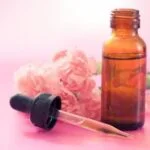Aromatherapy, an ancient practice that uses essential oils to promote well-being, has gained popularity in recent years for its potential benefits on mental health. Many individuals turn to aromatherapy as a natural remedy to alleviate symptoms of anxiety, stress, and depression. In this article, we will explore what aromatherapy oils are good for depression and how they can be used effectively to improve mental health.
Depression is a prevalent mental health condition that affects millions of people worldwide. Symptoms of depression can vary from feelings of sadness and hopelessness to loss of interest in daily activities and persistent fatigue. While there are various treatment options available, many individuals seek alternative therapies like aromatherapy to supplement their conventional treatments and support their emotional well-being.
Essential oils have been used for centuries for their medicinal properties, including their ability to affect mood and emotions. Studies have shown that certain aromatherapy oils can help alleviate symptoms of depression by promoting relaxation, reducing stress levels, and uplifting mood. Understanding the science behind how essential oils work can provide valuable insight into harnessing their therapeutic benefits for mental health improvement.
Understanding Depression
Depression is a common mental health disorder that affects millions of individuals worldwide. It can have a significant impact on a person’s overall well-being, leading to feelings of sadness, hopelessness, and low energy levels. Understanding the causes, symptoms, and impact of depression is crucial in order to effectively address and manage this condition.
Causes of depression can vary from biological factors such as genetics or brain chemistry imbalances to environmental factors like trauma, stress, or loss. Additionally, hormonal changes, certain medical conditions, and substance abuse can also contribute to the development of depression. Recognizing the underlying causes of depression can help individuals seek appropriate treatment and support.
Symptoms of depression may manifest differently from person to person but commonly include persistent feelings of sadness, loss of interest in activities once enjoyed, changes in appetite or sleep patterns, irritability, fatigue, and difficulty concentrating. If these symptoms persist for an extended period of time and interfere with daily functioning, it is essential to seek professional help. Depression not only affects one’s emotional state but can also impact relationships, work performance, and overall quality of life.
The Science Behind Aromatherapy
Aromatherapy has been used for centuries as a holistic approach to promoting overall well-being, including mental health. The use of essential oils extracted from plants has shown promising results in improving mood, reducing stress, and alleviating symptoms of depression. But how exactly do these aromatic compounds work to provide such benefits?
The science behind aromatherapy lies in the interaction between the compounds in essential oils and the olfactory system in our bodies. When we inhale the aroma of these oils, they travel through the nasal passage to the olfactory bulb, which is connected to the limbic system in the brain. The limbic system is responsible for regulating emotions, memories, and behaviors, which is why certain scents can evoke powerful emotional responses.
Research has shown that specific essential oils have a direct impact on neurotransmitters in the brain, such as serotonin and dopamine, which play a crucial role in regulating mood and emotions. For example, lavender oil has been found to increase serotonin levels in the brain, leading to a calming and uplifting effect. Bergamot oil, on the other hand, can help reduce cortisol levels (the stress hormone) and promote relaxation.
In addition to their effects on neurotransmitters and hormones, essential oils also have antioxidative properties that can help protect brain cells from damage caused by oxidative stress. This neuroprotective effect may contribute to the overall cognitive benefits of using aromatherapy oils for depression. By understanding the mechanisms behind how these oils work at a biological level, we can better appreciate their potential therapeutic value in promoting mental health and well-being.
| Aromatherapy Oils | Main Benefits |
|---|---|
| Lavender Oil | Calming, Relaxing, Mood-Boosting Properties |
| Bergamot Oil | Uplifting, Stress-Relieving, Anxiety-Reducing Effects |
| Ylang Ylang Oil | Eases Symptoms of Depression |
Top Aromatherapy Oils for Depression
Aromatherapy has gained popularity as a natural and holistic approach to improving mental health and well-being. The use of essential oils in aromatherapy can have powerful effects on mood, stress levels, and overall emotional balance. When it comes to depression, certain aromatherapy oils have been found to be particularly beneficial in alleviating symptoms and promoting a sense of calm and relaxation.
Among the top aromatherapy oils for depression are Lavender, Bergamot, and Ylang Ylang. Lavender oil is well-known for its calming and soothing properties, making it an excellent choice for easing feelings of anxiety and promoting better sleep.
Bergamot oil, derived from the peel of bergamot oranges, has uplifting and stress-relieving effects that can help combat feelings of sadness or hopelessness associated with depression. Ylang Ylang oil is another powerful aromatherapy oil that is commonly used to reduce symptoms of anxiety, tension, and stress.
Research suggests that these essential oils can impact the brain’s chemical messengers, known as neurotransmitters, which play a role in regulating mood and emotions. By inhaling or applying these oils topically, individuals experiencing depression may experience an improvement in their symptoms due to the direct influence of these aromatic compounds on the brain. Additionally, the act of engaging with pleasant scents through aromatherapy can trigger positive memories and emotions, further contributing to a sense of well-being.
| Aromatherapy Oil | Main Benefits |
|---|---|
| Lavender | Calming, relaxing, mood-boosting properties |
| Bergamot | Uplifting, stress-relieving, anxiety-reducing effects |
| Ylang Ylang | Reduces symptoms of anxiety, tension, stress |
Benefits of Lavender Oil for Depression
Lavender oil is a popular choice when it comes to using aromatherapy for depression due to its calming, relaxing, and mood-boosting properties. This versatile essential oil has been used for centuries to promote relaxation and ease feelings of stress and anxiety. Research has shown that the scent of lavender can help reduce levels of cortisol, the stress hormone, in the body, leading to a sense of calm and tranquility.
One of the key benefits of lavender oil for depression is its ability to improve sleep quality. Insomnia and disturbed sleep are common symptoms of depression, and lavender oil has been found to have a positive impact on promoting deep and restful sleep. By diffusing lavender oil in the bedroom before bedtime or applying it topically to pulse points, individuals struggling with depression can experience improved sleep patterns, which can have a significant impact on their overall mental health.
In addition to its calming effects, lavender oil also has mood-boosting properties that can help alleviate feelings of sadness and despair associated with depression. The aroma of lavender has been found to stimulate the release of neurotransmitters like serotonin and dopamine, which are known as “feel-good” chemicals in the brain.
By incorporating lavender oil into daily aromatherapy routines through diffusion or inhalation techniques, individuals suffering from depression can experience an uplifted mood and a greater sense of emotional well-being.
How Bergamot Oil Can Help With Depression
Bergamot oil is a popular essential oil that is known for its uplifting, stress-relieving, and anxiety-reducing effects, making it a valuable tool in managing depression. Derived from the peel of the bergamot orange fruit, this citrusy oil has a refreshing and invigorating scent that can help improve mood and mental well-being. Bergamot oil is often used in aromatherapy to promote relaxation, reduce feelings of tension, and increase feelings of joy and positivity.
One of the key ways in which bergamot oil can help with depression is by acting as a natural mood booster. The pleasant and citrusy aroma of bergamot has been shown to stimulate the brain to release neurotransmitters like serotonin and dopamine, which are linked to feelings of happiness and pleasure.
By inhaling bergamot oil or using it in aromatherapy practices, individuals can experience an uplift in mood and a reduction in feelings of sadness or low energy associated with depression.
In addition to its mood-enhancing properties, bergamot oil is also known for its stress-relieving effects. During times of stress or anxiety, bergamot oil can help calm the mind and body, promoting relaxation and a sense of peace.
This can be especially beneficial for individuals dealing with symptoms of depression, as chronic stress and anxiety can exacerbate depressive symptoms. By incorporating bergamot oil into their self-care routines, individuals may find relief from stress-related symptoms and experience greater emotional balance and resilience in coping with depression.
- Uplifting effect on mood
- Reducing feelings of stress and tension
- Promotes relaxation
Ylang Ylang Oil
One of the key benefits of Ylang Ylang oil for depression is its ability to help regulate emotions and promote a sense of well-being. The aroma of this essential oil is believed to stimulate serotonin production in the brain, which can help improve mood and reduce feelings of anxiety and sadness. Additionally, Ylang Ylang oil has sedative properties that can help calm a racing mind and promote better sleep, which is often disrupted in individuals experiencing depression.
In addition to its emotional benefits, Ylang Ylang oil is also known for its ability to reduce feelings of tension and stress in the body. When used in aromatherapy practices such as diffusion or topical application, this essential oil can help relax muscles, relieve physical discomfort, and create a sense of overall relaxation.
By incorporating Ylang Ylang oil into your daily routine, you can experience its profound effects on both your mental and physical well-being, making it a valuable tool in managing symptoms of depression.
How to Use Aromatherapy Oils for Depression
Aromatherapy oils can be a powerful tool in managing symptoms of depression and promoting overall mental well-being. There are various methods to effectively use aromatherapy oils for depression, including diffusion, topical application, and inhalation techniques. Each method offers unique benefits and can be tailored to individual preferences and needs.
Diffusion
One of the most common ways to use aromatherapy oils for depression is through diffusion. This method involves dispersing the essential oil molecules into the air using a diffuser. Diffusing oils such as lavender, bergamot, or ylang ylang can create a calming and uplifting atmosphere, helping to alleviate feelings of anxiety and sadness. The aroma from the oils can also stimulate the olfactory system, triggering positive responses in the brain that may improve mood.
Topical Application
Another way to use aromatherapy oils for depression is by applying them topically. Essential oils are highly concentrated plant extracts that can be diluted with a carrier oil (such as coconut or almond oil) before being applied to the skin. Massaging essential oils onto pulse points, temples, or specific areas of tension can promote relaxation and stress relief. When using this method, it’s important to patch test the oil first and follow proper dilution guidelines to avoid skin irritation.
Inhalation Techniques
Inhaling aromatherapy oils directly from the bottle or by adding a few drops to a tissue can provide quick relief from symptoms of depression. The scent molecules travel through the nasal passages and reach the brain quickly, influencing emotions and mood. Deep breathing exercises combined with inhaling essential oils can enhance relaxation and mindfulness practices, aiding in stress reduction and emotional balance. Experiment with different inhalation techniques to find what works best for you in managing feelings of depression.
By incorporating diffusion, topical application, and inhalation techniques into your daily routine, you can harness the power of aromatherapy oils for depression management effectively. Whether you choose to diffuse your favorite essential oil blend throughout your home, apply a calming oil to your wrists before bed, or practice deep breathing exercises while inhaling soothing scents, utilizing aromatherapy oils can be a valuable addition to your self-care regimen for improved mental health and well-being.
Precautions and Considerations When Using Aromatherapy Oils for Depression
Consultation With a Healthcare Professional
Before incorporating aromatherapy oils into your routine to help with depression, it is essential to consult with a healthcare professional. While essential oils can offer benefits for mental health, they are not meant to replace medical treatment for depression. A healthcare provider can provide guidance on how to use aromatherapy oils safely and effectively alongside any prescribed medications or therapy.
Dilution and Sensitivity Testing
It is crucial to dilute essential oils properly before applying them to the skin, as they are highly concentrated substances that can cause irritation or allergic reactions. Conducting a patch test on a small area of skin before widespread use is recommended to check for any sensitivity. For individuals with sensitive skin or allergies, it may be necessary to avoid certain essential oils or use them in lower concentrations.
Pregnancy and Children
Pregnant individuals and children require special consideration when using aromatherapy oils for depression. Some essential oils can have adverse effects during pregnancy or may not be safe for young children. It is best to seek advice from a healthcare provider familiar with aromatherapy and its potential risks in these populations. Certain oils should be avoided altogether during pregnancy, while others may be used under strict guidelines and supervision.
Conclusion
In conclusion, the use of aromatherapy oils for mental health, specifically in addressing depression, has shown promising results in providing natural relief and support to individuals navigating this challenging condition. Through the calming, mood-boosting, and stress-relieving properties of essential oils like Lavender, Bergamot, and Ylang Ylang, individuals struggling with depression can find a complementary approach to their mental health regimen.
These essential oils not only offer holistic benefits but also contribute to an overall sense of well-being and relaxation.
What aromatherapy oils are good for depression comes down to understanding the unique needs and preferences of each individual. While Lavender is known for its calming effects, Bergamot offers uplifting qualities, and Ylang Ylang provides powerful support for easing symptoms of depression. By exploring different essential oils and finding the ones that resonate with personal preferences, individuals can customize their aromatherapy experience to better suit their mental health goals.
Ultimately, incorporating aromatherapy oils into one’s routine for managing depression should be done with care and consideration. It is essential to follow proper usage guidelines, take precautions when necessary, and consult with a healthcare professional if needed. With the right approach and mindset, harnessing the power of aromatherapy oils can be a valuable tool in supporting mental health and well-being on the journey towards healing and recovery from depression.
Frequently Asked Questions
What Essential Oils Boost Mental Health?
Essential oils like lavender, chamomile, and bergamot are known to boost mental health. Lavender is particularly popular for its calming effects on the mind and body, helping reduce stress and anxiety levels.
What Essential Oil Improves Mood?
Citrus essential oils such as orange, lemon, and grapefruit are great for improving mood. These oils have uplifting properties that can help elevate your spirits and promote a sense of happiness and positivity.
What Is the Number One Essential Oil for Anxiety?
When it comes to anxiety, one of the most popular essential oils is lavender. It has soothing and relaxing qualities that can help calm the mind and body during times of stress or anxiousness. Its gentle aroma is often used in aromatherapy practices to alleviate feelings of tension and worry.

Are you looking for a natural way to improve your health and wellbeing?
If so, aromatherapy may be the answer for you.





